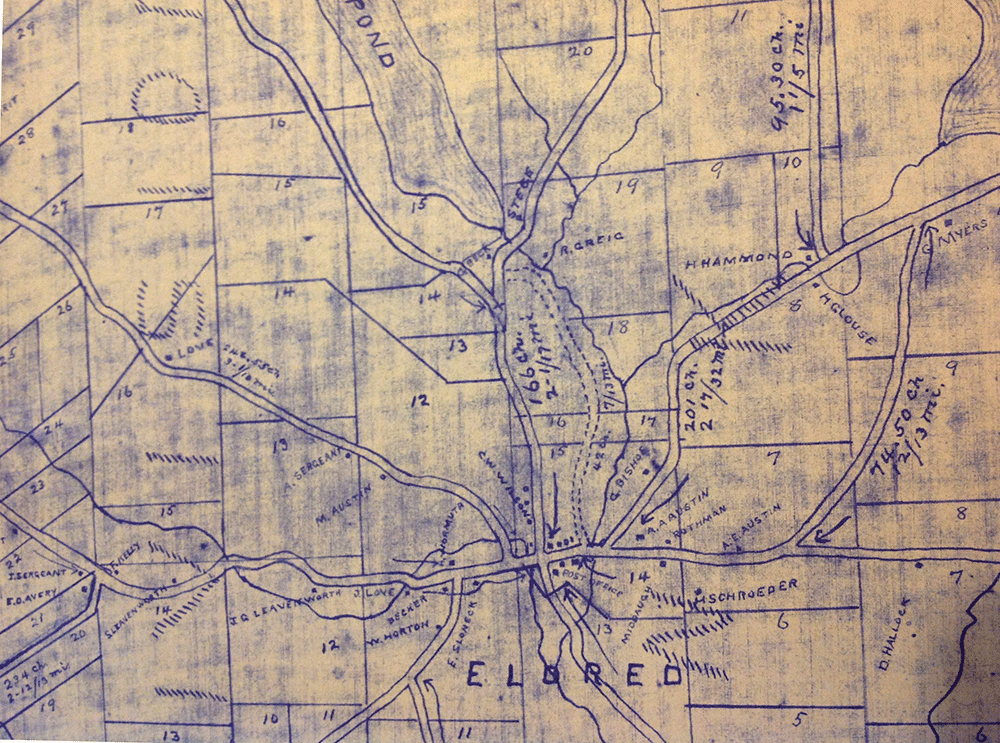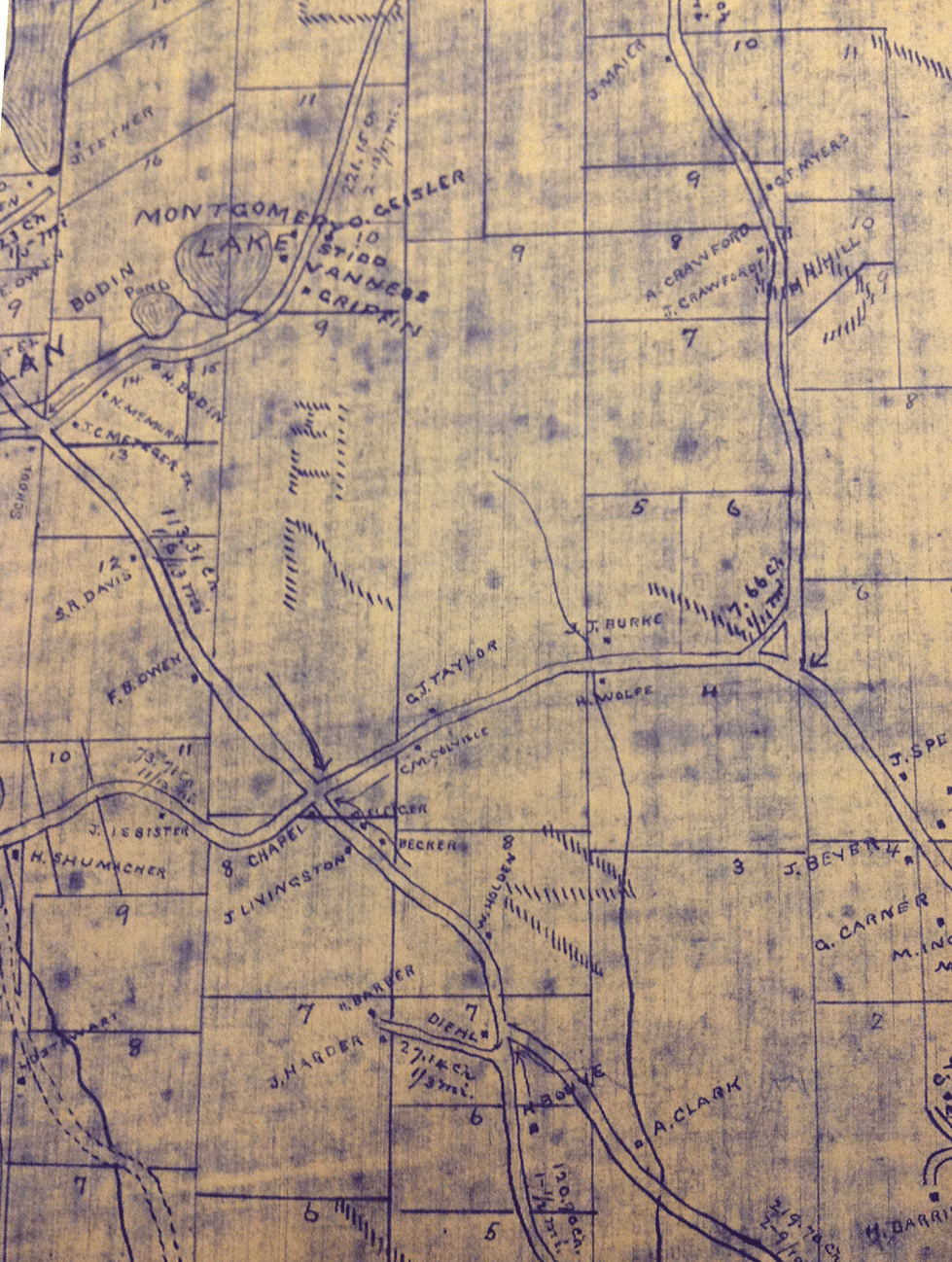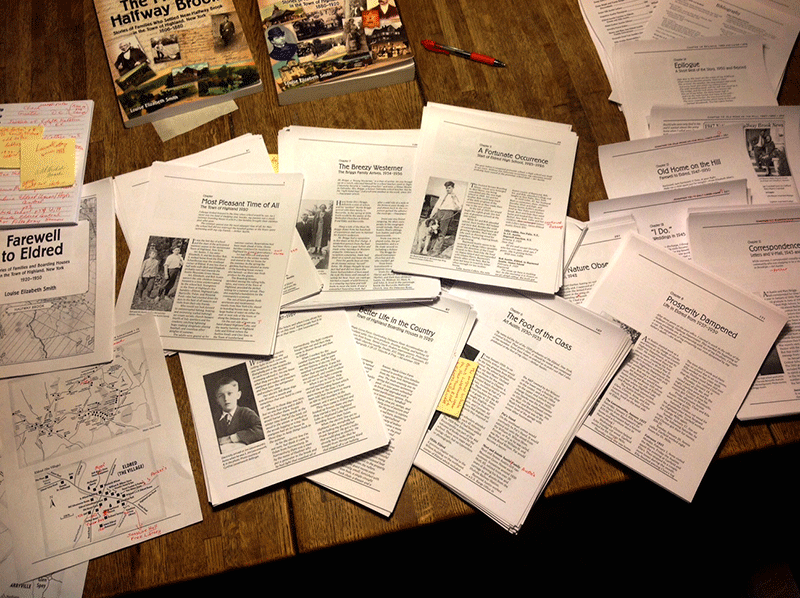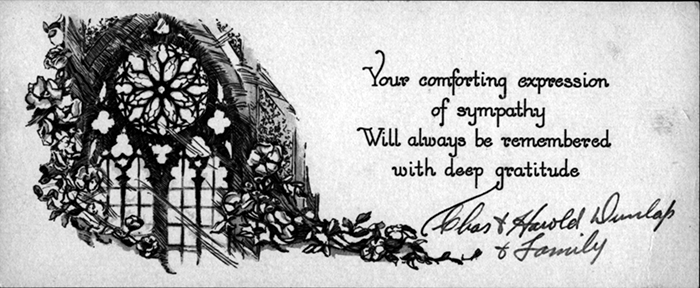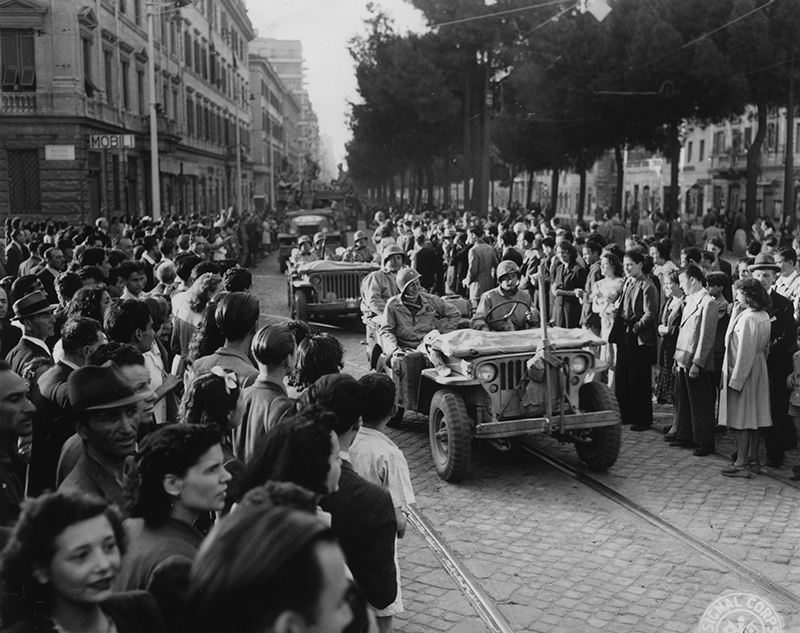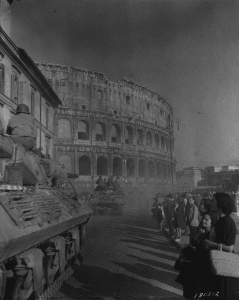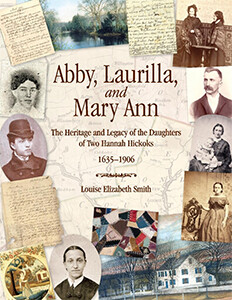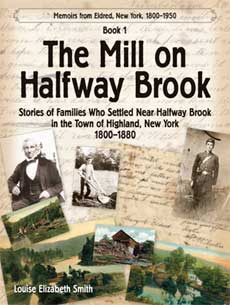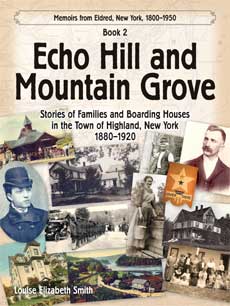Farewell to Eldred concludes the story of the families who settled on either side of Halfway Brook, in the Town of Highland, New York, first read about in The Mill on Halfway Brook, and continued in Echo Hill and Mountain Grove.
Through the eyes of her Austin and Leavenworth relatives, Louise Smith weaves an account of the daily lives of the descendants of early settlers (Austin, Leavenworth, Eldred, Myers, Bodine, Bradley, Bosch, Clark, Gardner, Hallock, Mills, Boyd, Horton, Parker, Greig, Stege, Sergeant, and Tether) who still lived in Eldred, Highland Lake, Yulan, Barryville, and Minisink Ford—the five hamlets of the Town of Highland (originally Lumberland).
We meet newcomers (Frey, Hensel, Theuer, Pankow, Hainzl, Bertram, Lorphelin, and Mellan), often from New York City, who purchase and run established boarding houses still vital to the area’s economy. The Erie Railway, Barryville Glass Factory (for a short while), and (later) Narrowsburg Lumber also offered employment.
Some 50 first-person reminiscences tell of stills, baseball teams, radio KDKA, the arrival of electricity, boarding house life, destructive flooding, the Depression, the search for employment, and World War II, in the years 1920 to 1950. Daily life—its joys and sorrows—is told through 1,100 photos, postcards, and documents, 150 letters, four diaries (shared by over 100 contributors) interwoven with World, National, and Local News; and Boarding House Ads.
Farewell to Eldred, the culmination of the Memoirs from Eldred, New York, 1800–1950 Series, includes original maps of boarding house locations, an extensive Appendix (with 1920, 1930, and 1940 Censuses), and an Index of some 2,550 people, places, and events.
(There will be a post announcing when Farewell to Eldred is available. Thank you for your patience.)




